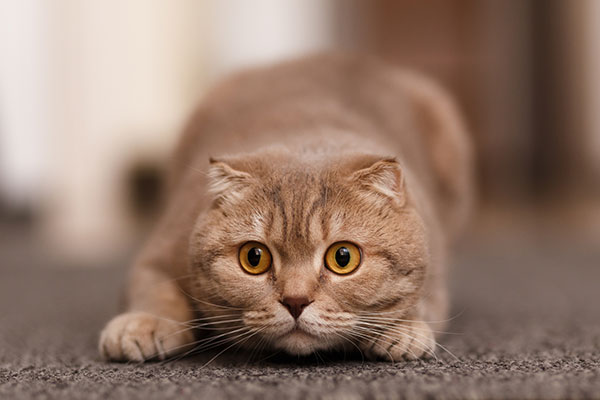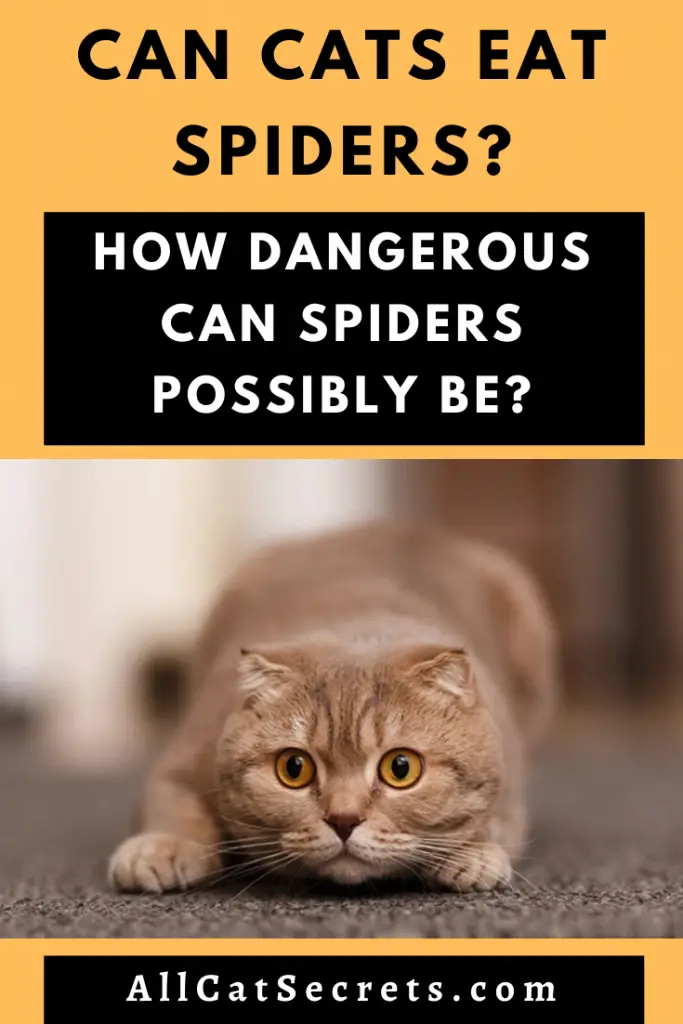Spiders are some of the most common house insects on the planet. So, there’s a likelihood that some of these insects live under the same roof with you. Which means that they also cross paths with your cat from time to time.
If you’re keen enough, you must have observed a tendency in cats to chase after anything that moves, including spiders.
You might even have realized that after chasing down a spider, your feline friend goes an extra step to eat it. Now, the sight of cats eating spiders may come across as too gross for some cat owners. But it isn’t for our cats.
So, can cats eat spiders?
The answer is a resounding yes. And spiders aren’t the only insects that your kitto will love. Cats can eat tons of other insects too, including flies, worms, centipedes, moths, ladybugs, cockroaches, ants, to mention but a few. Contrary to popular rumors, letting your cat eat a spider (including the venomous species) will not cause her any immediate health concerns.
The only problem comes when a venomous spider bites your feline friend. But as you shall find later on, the chances of a spider biting a cat are considerably minimal too.
Read on for more insights on cats and spiders.
Table of Contents
Why Do Cats Eat Spiders?
Many cat owners all over the world often wonder, do cats eat spiders? As we’ve just pointed out, cats can and do eat spiders. But spiders are not a regular component of a domestic cat’s menu. So, why do cats eat spiders?
The answer to that question lies in the curious nature of cats as well as their strong prey drive.
Although cats have been domesticated by humans for centuries, they have not shed off all of their feline instincts. These animals still have a strong prey drive and are curious about anything, especially something that moves.
It doesn’t matter how well-fed or properly socialized your cat is. The sound or scent of a mouse moving in the walls or attic will almost always cause the cat to go on the prowl. That strong prey drive is the very reason cats go after spiders and other insects.
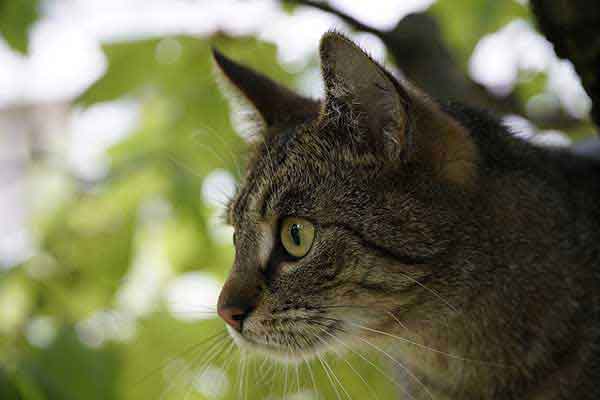
If it’s the first time your cat is encountering a spider, she will be more interested in finding out all about this ‘moving thing’. The more the spider maneuvers within its web, the more charged the cat gets. Before you know it, you’re looking at a full-blown hunt.
After hunting down the spider, the cat will likely have a taste. And since cats are obligate carnivores, anything that’s meaty is likely to appeal to them.
Another reason your cat may develop a taste for spiders is if the cat is bored. This mostly happens with cats that are left alone for extended periods without enough toys to keep them stimulated.
A cat that’s bored and lonely will take an interest in anything within her surroundings. She may choose to scratch on your furniture, chew on your clothing, or even chase around insects that live in or around the house.
In the process of killing boredom, your kitto may chase down a spider, kill it, and possibly eat it. If it tastes good (and most insects taste good to cats), then she will have acquired a taste for spiders.
From the explanations above, it’s evident that cats simply eat spiders out of sheer curiosity, their instinctive prey drive, and boredom.
But is it safe for cats to eat spiders? Although many spider species are safe for cats, some may be toxic for your kitto.
- EASY TO USE, IMPACTFUL RESULTS: Collect a sample, package it up, and send it securely back. Just register, swab, return with the...
- MOST COMPREHENSIVE BREED & TRAIT: Our test distinguishes over 20+ distinct breeds and 50+ trait markers with the most...
- SCREEN FOR 40+ GENETIC DISEASES: Get peace of mind by screening for 64 health markers associated with 43 diseases for which your...
Last update on 2024-07-12 / Affiliate links / Images from Amazon Product Advertising API
What Happens If a Cat Eats a Spider?
Although cats can safely eat most spider species, a lot of things can still go wrong.
The following are some of the common side effects of cats eating spiders;
1. Gastrointestinal distress
Cats may be obligate carnivores. But their stomachs are still likely to reject spiders, especially if it’s the first time the cat is eating the insect. It’s the same feeling you get when you eat exotic and unfamiliar foods.
Some of the symptoms of gastrointestinal distress include;
- Nausea and vomiting,
- Diarrhea or constipation,
- Dehydration (which often results from diarrhea), and
- Abdominal pains.
It’s worth noting that the symptoms of a cat ingesting spiders may be aggravated by the kinds of internal parasites that the insect carries. Some spiders may be infected with dangerous parasites like Physaloptera, or stomach worm. In a few cases, these worms may be passed over to your cat.
The situation could also get worse if a cat ingests spiders that are contaminated with toxins from insecticides and pesticides.
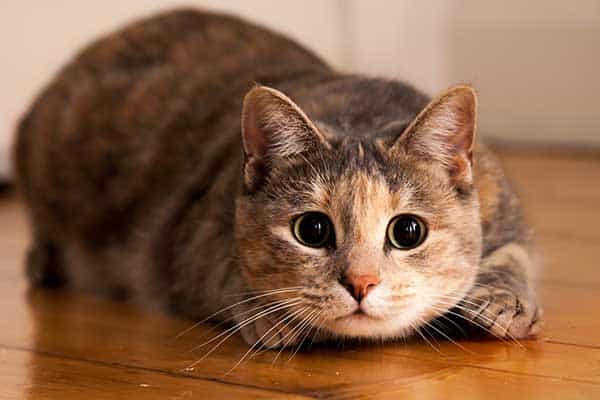
2. Allergic reactions
A cat may develop hypersensitive reactions from ingesting spiders or getting bitten by these insects.
In the case of ingestion, the symptoms will mostly manifest in gastrointestinal distress. But if your cat happens to have been bitten by a spider, you should generally watch out for the following symptoms;
- Bite wound, which is often painful to the touch,
- Inflammation to the skin,
- Redness to the skin,
- Itchiness of the skin,
- Warmth or hot feeling to the touch,
- Bruising,
- Necrosis of the skin,
- Scabbing of the skin,
- Difficulty breathing,
- Hypersalivation,
- Runny eyes and nose,
- Irritability,
- Tremors,
- Loss of coordination,
- Fever,
- Abnormal clotting, and
- Organ failure (which might result in coma and eventual death).
Evidently, the symptoms of spider bites on cats are more severe than those resulting from a cat ingesting the insect.
The saving grace, however, is that spiders are unlikely to bite your cat. That’s because a cat’s skin is thicker than a human’s. So, even if a spider bites your cat on the skin, it’s difficult for the insect to get its fangs past the thick barrier of fur to inject its lethal toxins.
However, it’s also worth noting that there are softer places on your cat’s body where a spider bite can penetrate with ease, including the underbelly, tongue, eyes, and muzzle. If you suspect a spider bite, examine these places first.
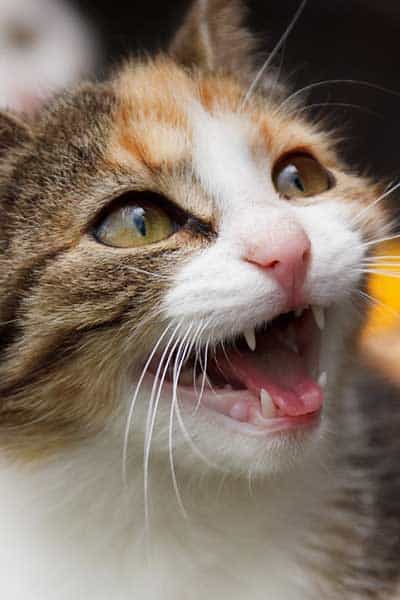
So, can cats get sick from eating spiders?
Based on the above symptoms, cats can surely get sick from eating spiders.
However, can cats die from eating spiders?
Well, your cat may not die immediately from eating spiders. But as with any mild feline condition, the symptoms of a cat eating a spider or getting bitten by one could result in eventual death if you don’t seek urgent medical intervention.
ALSO READ: Are Tulips Poisonous To Cats? Can Tulips Kill Cats
What Are The Deadliest Spider Species And How Can They Affect Your Cat?
All spiders are not made equal. While some present zero risks for your cat, other species are highly venomous. Venomous spider species are especially dangerous to cats if a cat gets bitten by them.
This section shall assess the toxicity of certain spiders by answering a couple of questions;
Can house spiders hurt cats?
Considered some of the most harmless types of spiders, house spiders are generally safe for cats.
Can cats eat black widow spiders?
No, black widow spiders carry lethal venom and a bite may kill your cat.
- FEED YOUR PET WHILE YOU’RE AWAY - Schedule up to 4 automated feedings per day using the built-in programmable timer.Program each...
- CONTROL PORTION SIZE OF EACH FEEDING - Dispense anywhere from 2 teaspoons to 4.5 cups dry food per feeding to sustain any size...
- RECORD A CUSTOM MESSAGE FOR YOUR PET - Keep your pet excited about meal times! Press and hold the mic button for three seconds to...
Last update on 2024-07-12 / Affiliate links / Images from Amazon Product Advertising API
Can cats eat brown recluse spiders?
Just like their black widow counterparts, brown recluse spiders are highly venomous.
Can cats eat hobo spiders?
Hobo spider bites can cause extensive skin necrosis. So, cats should not get in contact with these spiders.
Can cats eat wolf spiders?
Wolf spiders carry a mild venom, so an encounter with your cat may not be deadly.
Can cats eat huntsman spiders?
Despite their enormous size and active nature, huntsman spiders are generally safe for cats.
Generally, any spider that’s considered dangerous to humans might also cause harm to your feline friend.
Perhaps you’re also wondering whether cats can eat the spider web and asking yourself, ‘why does my cat eat spider webs?’ Now, a cat eating spider webs has a lot to do with her curiosity.
Lastly, can kittens eat spiders?
It’s not advisable for kittens to eat spiders. That’s because their stomachs are highly sensitive. Therefore, the kitten may experience more severe gastrointestinal symptoms. It’s even worse if a kitten gets bitten by a spider.
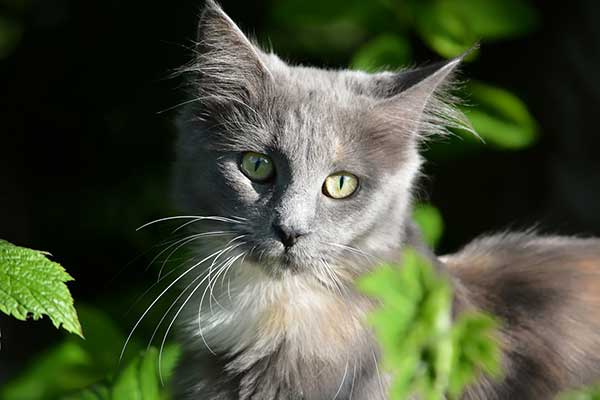
What to Do If Your Cat Eats Spiders
It’s not unusual to come across cat owners wondering, ‘my cat ate a spider, what should I do?’
If you suspect that your cat has eaten a spider, the first thing to do is check for any of the symptoms we highlighted earlier on. That’s because the treatment for spider poisoning mostly addresses the symptoms.
Generally, vomiting and diarrhea will lead to dehydration, necessitating rehydration. You can rehydrate your cat by offering her more fluids.
If the cat has been bitten by a venomous spider, your first line of defense would be to prevent the toxins from overwhelming the cat’s body. You can do that by administering hydrogen peroxide to induce vomiting or giving the cat activated charcoal to prevent the further absorption of toxins.
Remember, these are only emergency measures that you take as you prepare to visit the vet. Regardless of the nature and severity of the symptoms, you should always take a cat for veterinary examination if you suspect that she has been exposed to a spider.
And for cat owners that prefer prevention better than cure, there are lots of tips you can implement to reduce your cat’s exposure to spiders.
Some of those include;
- Providing the cat with lots of toys to tire her down so that she won’t readily go after spiders,
- Giving the cat adequate food and water,
- Keeping the level of spider infestation in your home under control using pet-safe insecticides,
- Removing noticeable spider webs,
- Removing all sheltering sites,
- Filling in gaps in the walls, basement, attic, and pipework,
- Installing door sweeps and window screens,
- Keeping wood piles away from the house,
- Vacuuming regularly,
- Trimming all plants and grass growing next to your house, and
- Decluttering your storage rooms.
- Reversible Design & Organic Catnip: This wide infinity cat lounge doubles as a scratcher with 2 textured sides for extended...
- Eco-Friendly & Stylish Scratcher: Made from recycled cardboard & non-toxic glue, this large scratcher keeps cats entertained &...
- LONG LASTING CORRUGATED CARDBOARD CAT SCRATCHER: Each piece of Petfusion's cat scratchers for indoor cats is connected for greater...
Last update on 2024-07-11 / Affiliate links / Images from Amazon Product Advertising API
Conclusion
There are hundreds of spider species out there. However, only a handful are venomous to cats. So generally, there shouldn’t be any cause for concern if you catch your cat snacking on spiders. But still, your best bet is to minimize her exposure to these insects, as you cannot always tell between a safe and venomous species.
Checkout Our Favorite Cat Products
1. Best Online Course For Cat Parents
Our favorite: The Cat Language Bible (How to Finally Understand And Speak to Your Cat) – A new form of cat to human communication that many cat owners have dreamed about… but few have actually thought possible.
2. Best Vacuum to Tackle Pet Hair
Our favorite: ORFELD Cordless Vacuum – Engineered for homes with pets. With features and tools that dig out dirt, hair and allergens everywhere your pet gets.
3. Best Immune Support For Cats
Our favorite: Tomlyn Immune Support – Best Supplement for Cats and Kittens.

